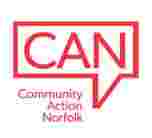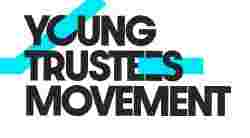Becoming a Trustee/Board Member
Who has Trustees and Board members?
When you hear ‘Trustee’ you may think of charity trustees, and you wouldn't be wrong. However voluntary groups, charities and social enterprises, often shortened to VCSEs, may all have trustees or non-executive directors.
What are they?
Trustee and non-executive director titles are often used interchangeably and there is a lot of overlap between the roles. In the not-for-profit sector both roles have overall responsibility for the management and future direction of an organisation. This means that they should ensure that the organisation is:
- doing what it says it will do in its governing document
- demonstrating how it is working for the benefit of the public
- complying with the law
- planning for the short, medium and long term
- using its resources (staff, finance, buildings) wisely
- accountable to its members and the public
Most of this business happens in trustee, board or committee meetings, and you would be expected to prepare for the meetings by reading the papers and thinking about the various topics for discussion. Outside of meetings, you may be involved in other activities, such as recruiting staff or volunteers, attending meetings and events, or supporting staff and volunteers with projects. If the organisation has paid staff, trustees generally have less involvement in operational matters than if the activities are all delivered by volunteers.
There's some great information on the roles of trustees and non executive directors on the Local Trust site.
Is this role is right for me?
Some roles require specialist knowledge or skills, but generally voluntary, community, social enterprises and other non-profit organisations are looking for people who are willing and able to commit their time, ideas and experiences to support the organisation’s cause.
Don’t worry if you haven’t been a member of a committee or a trustee before, and you don’t need to be an expert in the organisation’s area of work. Organisations are keen that their boards represent the different ages and backgrounds of people from their local communities, so if you are interested in a role, don’t hesitate to get in touch with the organisation to find out more about it
Organisations will generally provide information and training for new trustees, do reach out to them to discuss available training.
Joining a board is a great way to learn new skills, and gain experience in new areas – as well as meeting new people.
Did you know less than 3% of Trustees' are under 30 years old? We want to support this to change.
There is great work already taking place and many organisations are diversifying their boards. Young Trustees Movement are an organisation supporting this. While their focus is on age, young people are a broad demographic, therefore their campaign is part of a wider call for board diversity.
Find out more about Young Trustees Movement via the link below

Trustee and Board roles
Organisation role · Flexible hours
Branch Treaserer
Could your financial skills help save lives? Norwich Samaritans is seeking a Branch Treasurer to join our Board of Trustees to oversee the financial health
Posted by Norwich SamaritansOrganisation role · 2—4 hrs/Week
Trustee (Data Protection Lead)
As a Trustee, you will play a crucial role in guiding our organisation towards fulfilling its mission, and ensuring effective governance,
Posted by North Norfolk FoodbankOrganisation role · 2—4 hrs/Week
Trustee (Treasurer)
As a Trustee, you will play a crucial role in guiding our organisation towards fulfilling its mission, and ensuring effective governance,
Posted by North Norfolk FoodbankOrganisation role · Flexible hours
Secretary
The Secretary supports the Chair and Committee of Chatterbox and is a committee member and trustee of the charity. The role would suit someone in/near Norwich.
Posted by Chatterbox Norwich Talking NewspaperOrganisation role · 1—2 hrs/month · Starting from 9 Feb 2026
From home
Secretary
Join Mile Cross Good Neighbour Scheme to support residents, build community connections, and help create a safer, kinder, more connected neighbourhood.
Posted by Mile Cross Good Neighbour SchemeOrganisation role · Flexible hours
Norwich
Scouting Volunteer - Trustee Role in Long Stratton
We are looking for Volunteer Trustees to help provide strategic leadership and governance support for our Long Stratton Scout Group.
Posted by Norfolk ScoutsTraining, guidance and resources.
Get InVOLved Skills
Get Involved Skills, is an extension of Get InVOLved Norfolk. It aims to provide both volunteers and those working in Voluntary, Community and Social Enterprise (VCSE) organisations with easy access to training and development opportunities in Norfolk and Waveney.
These are training opportunities on our training site Get InVOLved Skills, click the links to be re-directed.

Community Action Norfolk
Community Action Norfolk
Community Action Norfolk offer a 2 hour on-line training session which provides Trustees of Norfolk organisations with greater understanding of their roles and responsibilities. This session covers:
o Different types of trustee
o Appointments and decision making
o Liabilities and conflicts of interest
o Reporting requirements
CAN are a membership organisation, for details on membership, training and fees head to their website by clicking the button below.

Young Trustees Movement
When 1/12 trustees are named either John or David and fewer than 3% of trustees are under 30, it’s no secret that board diversity is an issue.
Young Trustees Movement are running workshops after which you will
- Be able to articulate and understand how young trustees can enable organisations to navigate uncertainty, future proof decisions and reflect the interest of their communities.
- Have a framework to understand how to approach diversity on boards.
- Be able to run a session with a board to plan practical and achievable next steps.
Padlet notice board
More information and resources for Trustee's, Board members and Non Exec Directors can be found on our Padlet board below - scroll through columns to see older posts.
More information and resources for Trustee's, Board members and Non Exec Directors can be found on our Padlet board below - scroll through columns to see older posts.







